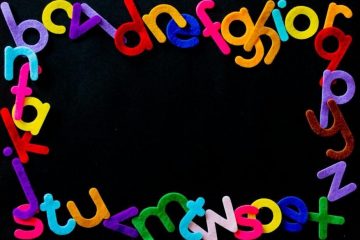The Smart Serve Program is a mandatory certification for alcohol service professionals in Ontario, ensuring responsible and legal alcohol service. It covers key concepts like standard drinks, BAC, and refusal techniques, while providing resources such as Smart Serve exam questions and answers PDF for effective preparation and compliance with provincial regulations.
Overview of the Smart Serve Program
The Smart Serve Program is designed to train individuals in responsible alcohol service, focusing on legal compliance and customer safety. It provides comprehensive resources, including Smart Serve exam questions and answers PDF, to ensure thorough preparation. The program covers essential topics like standard drinks, BAC calculation, and refusal techniques, while emphasizing practical skills for real-world scenarios. By completing the certification, participants gain the knowledge and confidence to serve alcohol responsibly, adhere to provincial regulations, and handle challenging situations effectively. The program is widely recognized in Ontario as a standard for alcohol service professionals.
Importance of Responsible Alcohol Service
Responsible alcohol service is critical to preventing intoxication, reducing risks of alcohol-related harm, and ensuring customer safety. It helps servers recognize signs of impairment, refuse service when necessary, and handle difficult situations professionally. By adhering to guidelines like the Traffic Light System, staff can assess intoxication levels effectively. Responsible service also protects establishments from legal penalties and reputational damage. Training programs, such as Smart Serve, emphasize these principles, providing resources like Smart Serve exam questions and answers PDF to ensure compliance and competence. Ultimately, responsible alcohol service promotes a safer environment for both customers and staff.

Key Concepts in Alcohol Service
Key concepts in alcohol service include understanding standard drinks, BAC, and the Traffic Light System for assessing intoxication. Smart Serve exam questions and answers PDF help master these essentials.
Understanding Standard Drinks and BAC
A standard drink contains 12 oz of beer, 5 oz of wine, or 1.5 oz of spirits, each equivalent to 0.6 oz of pure alcohol. Blood Alcohol Concentration (BAC) measures alcohol in the bloodstream, calculated by dividing total alcohol consumed by body weight and water volume. Smart Serve exam questions and answers PDF provide detailed examples and formulas to understand these concepts, ensuring servers can estimate intoxication levels accurately and serve responsibly.
The Traffic Light System for Assessing Intoxication
The Traffic Light System helps servers assess intoxication levels by categorizing customers into three groups: green (sober), yellow (moderately intoxicated), and red (intoxicated). Green indicates normal behavior, yellow shows signs like slower speech or slight unsteadiness, and red involves severe impairment, requiring refusal of service. This system, covered in Smart Serve exam questions and answers PDF, aids in making informed decisions to prevent over-serving and ensure legal compliance. Servers are trained to observe behavior, body language, and physical signs to accurately categorize customers and act appropriately.

Legal Aspects of Alcohol Service
Understanding legal aspects is crucial for compliance with alcohol service laws, including serving minors and intoxicated patrons. Smart Serve exam questions and answers PDF cover penalties, ID verification, and regulatory requirements to ensure lawful alcohol service practices.
Legal Drinking Age and ID Requirements
In Ontario, the legal drinking age is 19 years old. Servers must verify customers’ ages using valid government-issued ID, such as a driver’s license or passport. Smart Serve exam questions and answers PDF emphasize recognizing fake IDs and understanding acceptable identification formats. Proper ID checks help prevent underage drinking and ensure compliance with provincial laws. Training materials provide examples of valid IDs and strategies for refusing service to minors or those without proper identification. Familiarizing oneself with these protocols is essential for passing the certification exam and maintaining legal alcohol service standards.
Penalties for Non-Compliance
Non-compliance with alcohol service laws can result in severe penalties, including fines and legal action. Smart Serve exam questions and answers PDF highlight potential consequences, such as fines up to $250,000 for businesses and $100,000 for individuals. Repeat offenses may lead to license suspension or revocation. Servers and establishments must adhere to legal drinking age requirements and ID verification processes to avoid penalties. Understanding these consequences is crucial for responsible alcohol service and ensuring compliance with provincial regulations, as outlined in certification materials and practice exams.

Refusal Techniques
Refusal techniques involve polite yet firm communication, such as using specific refusal phrases and assessing intoxication levels using the Traffic Light System to ensure responsible service and safety.
Effective Strategies for Refusing Service
Effective strategies for refusing service involve assessing intoxication levels using the Traffic Light System, employing polite refusal phrases, and maintaining professionalism. Staff should monitor consumption, use non-confrontational language, and offer alternatives like water or food. Refusal should be firm yet respectful, ensuring the customer understands the decision. Training and practice, such as through Smart Serve exam questions and answers PDF, help servers confidently apply these strategies while adhering to legal and ethical standards, promoting a safe environment and preventing over-serving.

Monitoring Alcohol Consumption
Monitor alcohol consumption by tracking drink counts, observing behavior, and using tools like the Traffic Light System. Employ methods such as different glass types for alcoholic/non-alcoholic drinks and reviewing bills to assess intake, ensuring responsible service and compliance with legal standards, as outlined in Smart Serve exam questions and answers PDF.
Methods to Track Customer Consumption
Effective methods to track customer alcohol consumption include using different glass types for alcoholic and non-alcoholic drinks, monitoring the number of drinks served, and observing behavioral changes. Staff can also review the customer’s bill to assess consumption patterns; Additionally, employing the Traffic Light System helps identify intoxication levels, guiding decisions to refuse service when necessary. These strategies ensure responsible alcohol service and compliance with legal requirements, as detailed in Smart Serve exam questions and answers PDF and official study materials.

Incident Reporting
An Incident Report is completed when refusing service to an intoxicated guest, encountering false ID, or addressing violent behavior. It documents details for legal and accountability purposes, ensuring compliance with regulations outlined in Smart Serve exam questions and answers PDF.
When and How to Complete Incident Reports
Incident reports are essential for documenting refusal of service, false ID presentations, or violent incidents. When a situation arises, staff must immediately record details. How involves noting the date, time, location, individuals involved, and specific circumstances. This process ensures accountability and legal compliance. The Smart Serve exam questions and answers PDF provides examples and guidelines to help staff understand their role in maintaining accurate records. Proper reporting protects both the establishment and employees from potential liabilities, emphasizing the importance of thorough documentation in all such cases.

Preparing for the Smart Serve Exam
Utilize Smart Serve exam questions and answers PDF for comprehensive preparation. Official materials and practice tests help familiarize candidates with the exam format and content, ensuring readiness.
Using Official Study Materials and Practice Tests
Official Smart Serve exam questions and answers PDF are essential for effective preparation. These materials provide authentic scenarios and questions, mirroring the actual exam. Practice tests help identify strengths and weaknesses, allowing focused study. Candidates can familiarize themselves with the exam format and timing, reducing anxiety. Additionally, flashcards and study guides available in PDF format offer convenient offline access. Regularly reviewing these resources ensures a thorough understanding of key concepts, such as responsible alcohol service and legal requirements. Consistent practice with official materials significantly improves confidence and readiness for the certification exam.
Exam Format and Preparation Tips
The Smart Serve exam consists of multiple-choice questions assessing knowledge on responsible alcohol service. Candidates are advised to allocate time wisely, answering easier questions first. Utilizing the Smart Serve exam questions and answers PDF helps familiarize oneself with the format. Practice tests reveal common question patterns and emphasize key areas. Effective preparation involves reviewing study guides, focusing on high-weight topics like refusal techniques and legal aspects. Mock tests simulate real exam conditions, enhancing time management and accuracy. Consistent practice ensures readiness and confidence to achieve certification successfully.



0 Comments